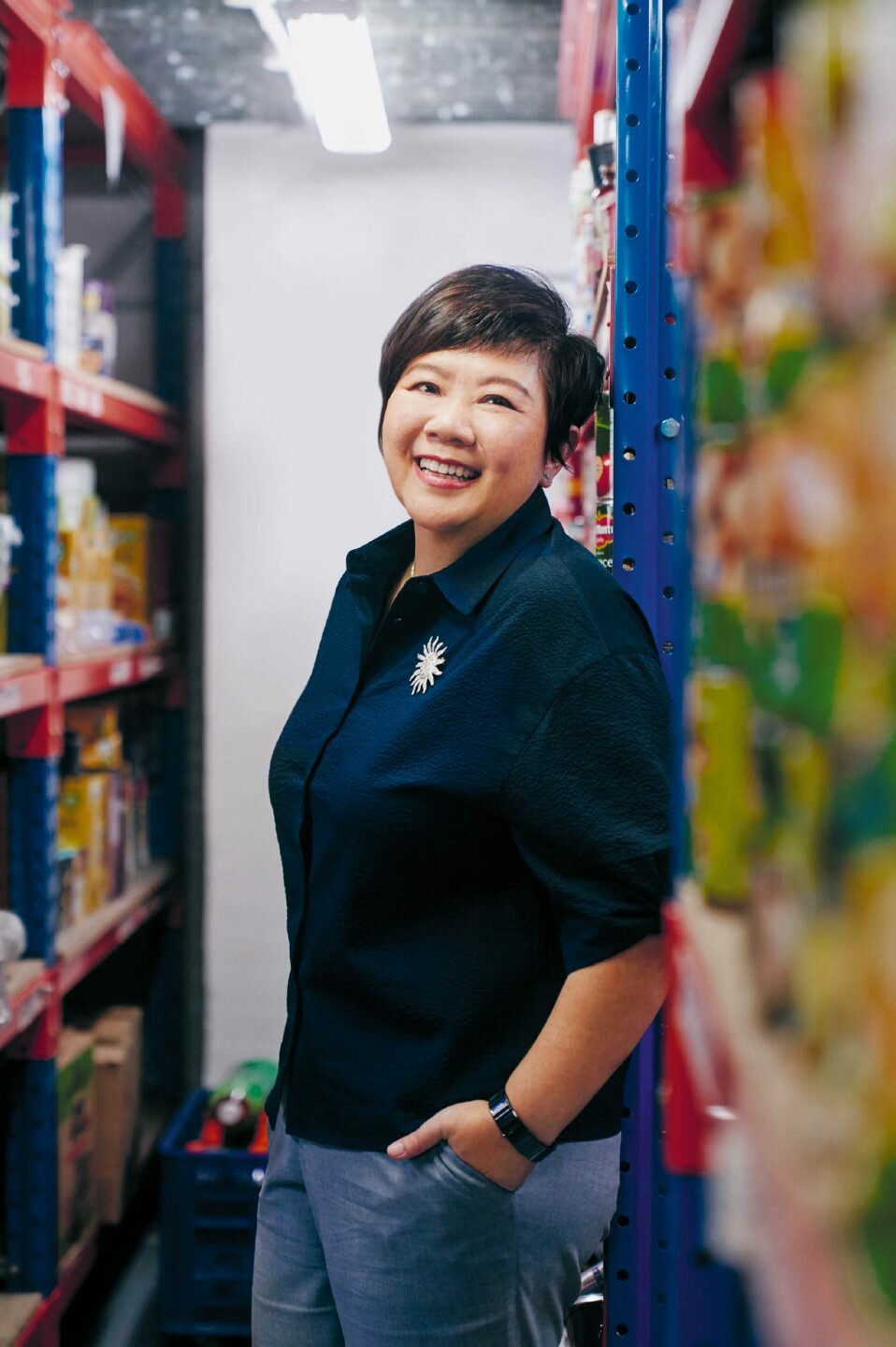Keeping its sights firmly on its vision of alleviating hunger and bravely battling the challenges of Covid-19 to provide close to 80,000 food packs to 8,900 needy families, Food from the Heart’s CEO Sim Bee Hia steered her team towards digitisation. As she looks back on her most memorable moments of 2020, she also explains why there’s “a lot of work to be done”. If you would like to chip in, check out its newly launched Gift of Hope Christmas fundraising campaign here.
Your most important take away from 2020?
Many hands make light work. Covid-19 brought with it many challenges we had to work around. It began in February, when Singapore hit Dorscon Orange and companies cancelled CSR activities. To push through our Community Food Pack programme and get food packs sent to the needy, we immediately contacted our regular volunteers, many of whom returned to help, from sorting out food donations in the warehouse to dropping off food packs at beneficiaries’ homes.
Everyone shared that same sense of urgency and worked towards the solutions; someone knew someone who had been affected by the virus. There were days we were messaging one another until 1.30am. There was never a moment I felt alone. On the contrary, I felt very blessed; as we were wondering how to solve the problem, along comes an outpouring of support!
Your hero of the year?
The man on the street. Besides our regular volunteers, there were people whose CSR was cancelled but returned in their personal capacity. One limousine company brought in their drivers to chip in with delivery. Another company, which plans trips for schools that were cancelled, got their staff to help with packing.
A friend from a courier company allowed us to tap on his virtual platform so we could do contract tracing, for free! We were also overwhelmed by the generosity of Singaporeans, who kept the donations coming in so we could upsize our food packs. As the country went into lockdown and people stayed home, this helped ease the burden for low-income families.
Most memorable moment?
I enjoy meeting our beneficiaries whenever I chip in to deliver food packs. They have taught me so much about contentment and resilience even during these challenging times.
One couple with three young kids were having dinner when I dropped by their rental flat. They were very happy to receive the food pack and supermarket vouchers and started taking photos with us. As I was leaving, I heard the father telling his kids, “Come, we can go and buy your favourite food now.”
Very often, the simplest pleasures can spark the greatest joy. Experiences like this makes one pause and reflect, “Do you really need to buy another new blouse?”
Has Covid-19 changed how you steer Food from the Heart?
If anything, it’s enabled us to embrace digitisation. It will allow us to build capacity and capability to better reach out to and help smartphone- and social media-savvy beneficiaries. For one, it can help us analyse consumption habits, such as the number and type of items beneficiaries want.
During Covid-19, when elderly beneficiaries couldn’t come to our Community Shop to get groceries, we could retrieve such information from the database and help put together the food packs. And by accessing data such as when the food packs are collected or why they are not collected, we can create an early intervention system to help them.
How has the pandemic made Food from the Heart’s mission to alleviate hunger ever more crucial?
There’s a lot of work to be done in 2021. The economy hasn’t exactly picked up and as companies continue to lay off staff and government assistance runs out, more people will be struggling financially.
We expect belts to be tightened next year, hence we want to raise funds to create a buffer for the next 24 months. There are still people who have difficulty putting food on the table.
While food is not the solution to the multifarious problems faced by the needy, it can open up conversations about the areas they can seek help from, say, family services centres. By enhancing our role as a connector, Food from the Heart can serve and look after more people.
